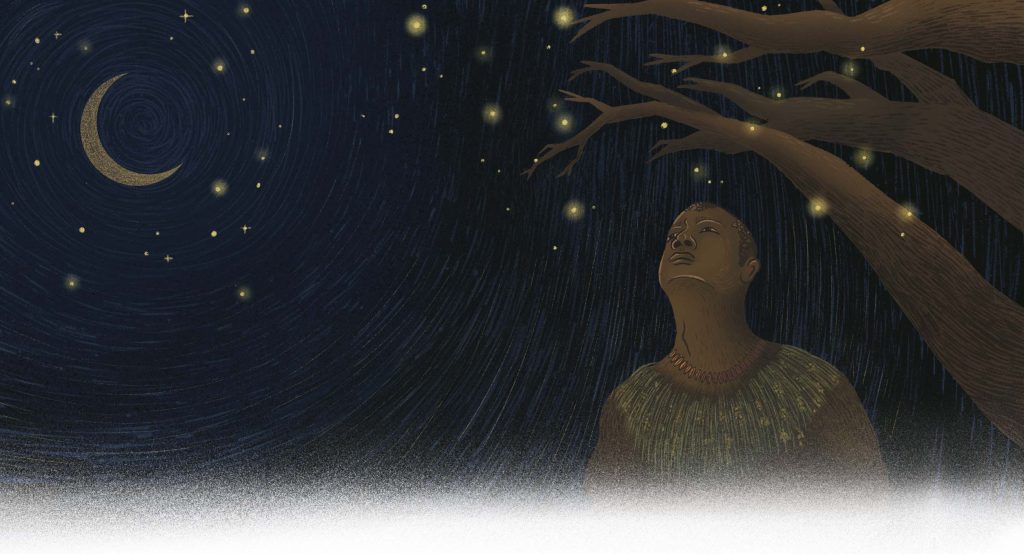“I became obsessed with work, always there, barely sleeping, fully committed. It took so much of my life and I didn’t equally divide work and my personal life. Sometimes I wouldn’t see my own family for 2–3 weeks at a time.”
Kahindi Changawa’s experience is far too common in the conservation space. The urgency to our conservation issues is palpable. While the local solutions are just within reach, they still require strong commitment and effort to attain. For Kahindi, a Program Coordinator at Kenya’s Local Ocean Conservation, the plastics wrapped around and inside sea turtles coupled with rampant poaching were problems he couldn’t let rest. And that became 20 years of mobilising communities and 20 years without a day off. “I didn’t realise the stress that was building up. I didn’t recognise what that looked like.”
Kahindi was a participant in the first-ever African Marine Conservation Leadership Program, a program designed and run by Maliasili and Blue Ventures. It brought together a new generation of marine conservation leaders from Somalia, the Comoros, Kenya, and Tanzania, strengthening their skills and confidence to lead.
Kahindi and his fellow participants spent three weeks exploring leadership at different levels: individual, team, and system.
Individual Leadership: This relates to how individuals develop their own personal skills and characteristics as leaders, develop self-awareness of their preferences and tendencies, maximise personal strengths, develop the ability to relate to and interact with other people, and manage one’s own time and health (e.g., motivation, avoiding burnout).
Organisational Leadership: This pertains to the leadership of organisations and their management, as a group of people working towards common aims. Effective leaders need to strengthen the performance and durability of their organisations, managing for results, mobilising resources (i.e., fundraising and business development), and leading strategically.
Collaborative Leadership: This aspect of leadership extends beyond one’s own organisation, to the scale of multiple organisations and different actors, whose interactions are critical to achieving large-scale, systemic change. A good leader constantly reaches out beyond the confines of their organisation to increase impact. To be effective, one must build trust, cooperate, and unify around common goals and a shared vision.
At the end of the program, it is hoped that the conservation leaders will take their new skills, experiences, and personal awareness back to their organisations and work to enhance team performance and conservation impact.
Kahindi did just this, and he’s seen changes both personally and professionally: “Time and prioritisation have been my greatest leadership challenges… I’ve made adjustments, delegating more and identifying top priorities. I now spend two days a week with just me and my family.”
How are you leading?
The conservation field needs more effective leaders who can inspire others, while also taking care of themselves. We need stronger local organisations that help people realise their full potential, grow, and strengthen their performance. And we need collaborations that work, where organisations pool their skills and resources to achieve something much greater than they can do on their own.
Below are some questions to help conservation leaders reflect on what’s needed to be effective and supportive on all three leadership levels. How are you currently leading? How do you want to lead?
Leading Oneself: Which three words best describe your leadership style? Do you think your team would choose the same words or view your style differently?
Leading Teams: What has been your best management experience? What made it great? Based on your answer above, how do you think you can manage your team better?
Leading Collaborations: Think about an important partnership or collaboration you have been part of. Can you think of any individual who played an important role to make it work? What did they do? You might also reflect on whether there was any individual who was particularly ineffective and why.
About the column
Maliasili helps great local conservation organisations become even better by focusing on organizational development and growth. Ultimately, Maliasili supports greater conservation impact through stronger organisations achieving more. This column takes a different look at our conservation field by providing ideas and thinking to strengthen organisations, as these are often undervalued and get overlooked. They are critical to an organisation’s effectiveness and thus, to our planet’s health.






